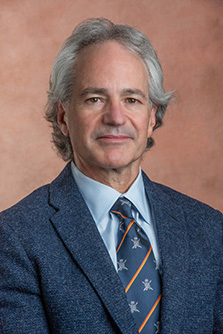
Department Chair
The General Surgery Residency Program at WMed continues to grow and evolve. Our residency program continues to provide outstanding clinical training with an emphasis on early and extensive operative experience. With the establishment of the medical school, however, a new emphasis on academic opportunities in research and education has begun. The ultimate goal is to produce outstanding surgeons who will be competitive for the best fellowships in the country, and be prepared to enter practice in any environment, including academic, community, and rural settings.
Although more traditional experiences in either clinical or basic science enquiry are possible, four new programs have been developed to allow our residents to fulfill their individual educational needs. These include:
- Simulation: WMed maintains a fully-funded, state of the art simulation center, including a simulated operating room and endoscopic, laparoscopic, and robotic trainers. Multiple research projects are underway to learn how to better utilize simulation in surgical education, including the development of a fuzzy logic-enhanced box trainer in conjunction with the WMU College of Engineering.
- Global surgery: Under the guidance of Marc Downing, MD, a pediatric surgeon at Bronson Methodist Hospital, we have initiated an elective global rotation in Monrovia, Liberia. This experience is intended to allow interested residents to gain exposure to care in low- and middle-income settings, allowing them to decide the on the role of global surgery in their future careers.
- Medical Engineering: A collaboration between WMed and the WMU College of Engineering and Applied Sciences has allowed the launch of a master's degree program in medical engineering. For an appropriate general surgery resident with a deep interest in device design or systems engineering, a dedicated two-year research fellowship to complete this program would position them for an exciting career in surgical innovation.
- Rural Surgery: The Department of Surgery was approved for a unique, rural surgery track that began in July 2020. Currently, we have three residents in this program at PGY1, PGY2, and PGY3. WMed is participating in a state-funded program called MIDOCs designed to increase the number of rural physicians in Michigan, including surgeons. The Kalamazoo area has multiple training sites within an hour’s drive, with a broad spectrum of surgical problems a surgeon in a rural/underserved community will encounter.
The majority of our residents will significantly change their career goals during residency. Our program is designed to produce technically outstanding surgeons who can choose their next position, no matter the desired subspecialty, practice type, or setting. Our diverse and individualized training opportunities leave all these doors open.

